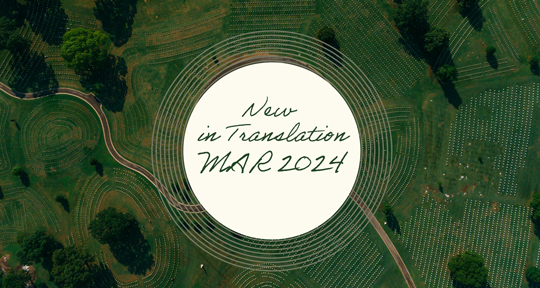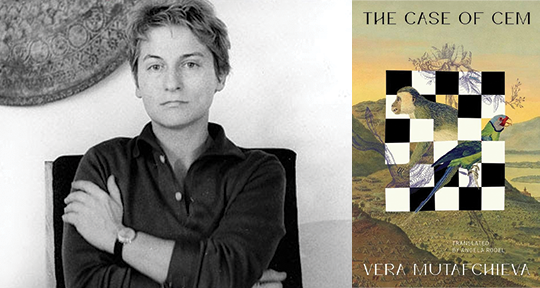SUBMISSIONS
THE VIEW FROM GAZA
The Massachusetts Review is calling for submissions for a special issue, The View From Gaza. Palestinian writers are encouraged to send their work—whether it be poetry, prose, essays, or art—for this special issue, which will commemorate those who have been lost in the genocide and celebrate the ongoing resistance and resilience in Gaza.
As Israel’s violence against Gaza continues, the Review “hope[s] to amplify the work of Palestinian writers that contributes to the theory and critique of Empire and settler colonialism.” Submissions in English, Arabic, and other languages are all eligible.
The deadline for submissions is June 15th. Submissions should be sent to themassreview@gmail.com.
EVENTS
2024 GRIFFIN POETRY PRIZE READINGS
On June 5th, 2024, the Griffin Poetry Prize invites you to join them for an evening of poetry and translation!
Awarded annually, the Griffin Poetry Prize is the world’s largest international prize for a book of poetry written (or translated into) English. At this celebratory event, this year’s shortlisted poets will read from their works at the Royal Conservatory of Music in Toronto before this year’s winner is revealed. Readings will also be performed by the Lifetime Recognition Award recipient and the 2024 Canadian First Book Prize winner.
Tune in to the the Griffin Poetry Prize’s Youtube channel to watch a livestream of the readings on June 5th at 7pm ET.
GRANTS & FUNDING
GLOBAL AFRICA TRANSLATION FELLOWSHIP
The Africa Institute is welcoming applications for their fourth annual Global Africa Translation Fellowship!
This fellowship aims to celebrate works from the African continent, as well as from the African diaspora. Translators from across the Global South can submit their works-in-progress or potential projects to be considered for a grant of up to $5,000. Translations of previously untranslated poetry, prose, and critical theory works, as well as retranslations of older texts, are eligible. Submissions should be translated into English or Arabic, although translations into some other languages may also be considered.
The deadline for applications is June 1st, 2024. Find more information on eligibility and how to apply here.
RESIDENCIES & WORKSHOPS
BCLT ADVANCED TRANSLATION WORKSHOPS
Since 2021, the British Centre for Literary Translation has run annual advanced translation workshops to support the craft of literary translators and to bring together those with common language pairs. This year’s workshop will center on translators of Taiwanese literature.
Workshop participants will have the opportunity to work with other attendees to hone a sample translation for their chosen project. By the end of the program, participants will have a polished sample, as well as a pitch, that is ready to send off to potential publishers. Accepted applicants will need to choose a book from the Taiwan Literature Awards for Books longlists and obtain permission to translate the work.
The deadline for applications is June 2nd, 2024, while the event itself will run online during the 7th, 22nd, and 23rd of November. Read more here.
***
Our mission here at Asymptote is to elevate the incredible work that translators do to to share literature from around the world. Our “Upcoming Opportunities” initiative aims to provide those translators with the opportunity to improve their craft and share the projects they’ve put their hearts into. Have an opportunity that you’d like us to share in this monthly column? Check out our rates here, then drop us a line.
We’re working hard on our upcoming 52nd issue. If you’ve enjoyed the work we do—from our social media channels and blog to our newsletters and, of course, our quarterly issues—please consider supporting us as we continue to celebrate world literature and those that bring it to life. Any and all donations to support us on our mission are greatly appreciated. Thank you!
Read more on the Asymptote blog:







